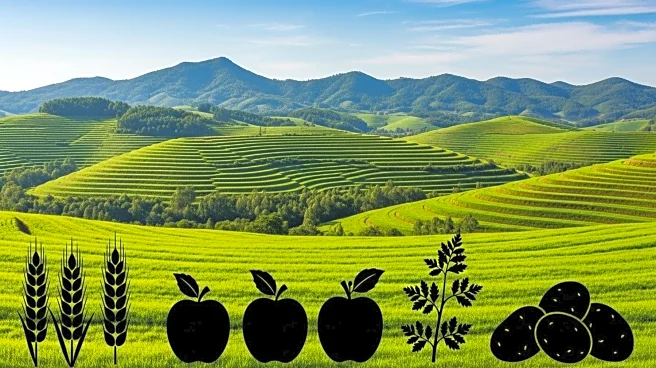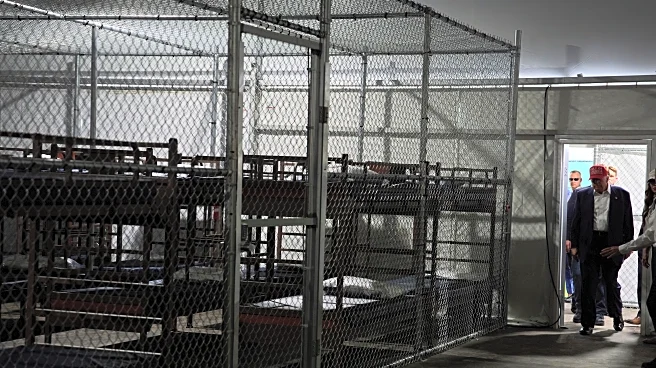What's Happening?
The Himachal Pradesh government, led by Agriculture and Animal Husbandry Minister Chandra Kumar, has introduced a new agricultural roadmap aimed at enhancing the profitability and sustainability of farming in the state. This initiative was announced during a regional workshop on the 'State Agriculture Road Map and Rabi Action Plan' held at the Indian Potato Research Institute. The roadmap is part of the Vikasit Krishi Sankalp Abhiyan (VKSA) and seeks to provide strategic direction for the agricultural sector over the next five years, from 2025 to 2030. The plan emphasizes a scientific approach to agriculture, leveraging research from agricultural universities and research centers. Key components include promoting natural farming, minimizing pesticide use, and integrating modern technologies like remote sensing. Additionally, the roadmap includes initiatives such as increasing milk prices and establishing a modern milk processing plant to support farmers' economies.
Why It's Important?
This new agricultural roadmap is significant as it aims to address both economic and environmental challenges faced by the agricultural sector in Himachal Pradesh. By focusing on natural farming and reducing pesticide use, the plan seeks to protect the environment and human health, which is crucial for sustainable development. The integration of modern technologies is expected to enhance productivity and efficiency, potentially leading to increased profitability for farmers. The initiative also highlights the importance of cattle in agriculture, indicating a holistic approach to farming. The roadmap's success could serve as a model for other states in India, promoting sustainable agricultural practices and contributing to the country's overall agricultural output, which currently accounts for 14% of the GDP.
What's Next?
The implementation of the agricultural roadmap will involve collaboration with State Agricultural Universities, government departments, and ICAR Institutes to ensure effective execution. Training programs for officers in modern technologies are already underway, and the establishment of the milk processing plant is expected to proceed with the support of the Dairy Development Authority. The roadmap's progress will likely be monitored through regular evaluations and adjustments to strategies as needed. Stakeholders, including farmers and agricultural experts, will play a crucial role in providing feedback and ensuring the plan's success.
Beyond the Headlines
The shift towards natural farming and reduced pesticide use reflects a growing global trend towards sustainable agriculture. This approach not only benefits the environment but also aligns with consumer demand for healthier food options. The roadmap's emphasis on modern technology integration could lead to long-term shifts in agricultural practices, potentially influencing policy decisions at the national level. Additionally, the focus on cattle and dairy development underscores the importance of livestock in rural economies, which could lead to further investments in this sector.










